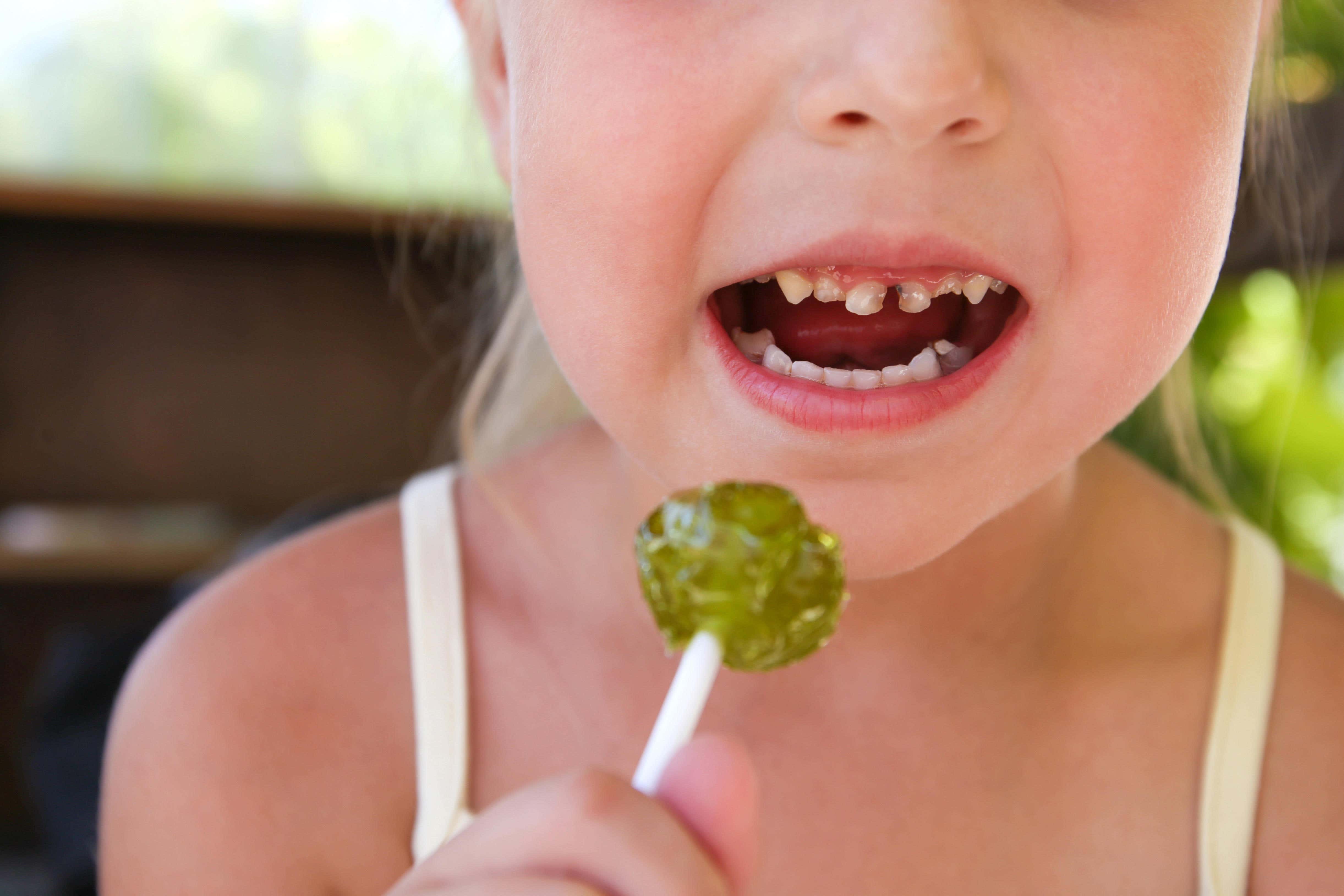Nearly a third of five-year-olds in England has tooth decay, study shows
The figures showed that children in north-west England were most likely to have experienced decay of the dentin layer.

Your support helps us to tell the story
From reproductive rights to climate change to Big Tech, The Independent is on the ground when the story is developing. Whether it's investigating the financials of Elon Musk's pro-Trump PAC or producing our latest documentary, 'The A Word', which shines a light on the American women fighting for reproductive rights, we know how important it is to parse out the facts from the messaging.
At such a critical moment in US history, we need reporters on the ground. Your donation allows us to keep sending journalists to speak to both sides of the story.
The Independent is trusted by Americans across the entire political spectrum. And unlike many other quality news outlets, we choose not to lock Americans out of our reporting and analysis with paywalls. We believe quality journalism should be available to everyone, paid for by those who can afford it.
Your support makes all the difference.Nearly one-in-three youngsters aged five in England has tooth decay, figures show.
Data from the National Dental Epidemiology Programme for 2021 to 2022 shows that 29.3% of children aged five have enamel decay or more serious decay to the layer of dentin under the enamel.
Regionally, this figure ranged from 23.3% in the South West to 38.7% in the North West.
Of the one in three children with any decay, 23.7% had the more serious dentinal decay.
This was similar to the finding of the previous 2019 survey when 23.4% had dentinal decay.
Overall, an average of three out of about 20 total teeth were affected.
The figures showed that children in north west England were most likely to have experienced dentinal decay (30.6%) while, at local authority level, Brent in London had the highest proportion, at 46%.
Overall, children living in the most deprived areas of England were almost three times more likely to have experience of dentinal decay (35.1%) as those living in the least deprived areas (13.5%).
High frequency of consumption of sugar-containing food and drink is also a contributory factor to other issues of public health concern in children, for example, childhood obesity
The programme’s report said tooth decay affecting one or more incisor (front) teeth is usually linked with long-term use of feeding bottles with sugar-sweetened drinks, especially when these are given overnight or for long periods during the day.
About 6.6% of children had dentinal decay of incisor teeth in England, with the figure being lowest in the South West (5%) and highest in London (8.6%).
Overall, 2% of children in England have advanced tooth decay, while one in five (21.2%) children had some dental plaque.
The report said: “The cause of dental decay is well understood and is related to the frequent exposure of teeth to fermentable carbohydrates, most commonly through eating and drinking sugary snacks and drinks.
“High frequency of consumption of sugar-containing food and drink is also a contributory factor to other issues of public health concern in children, for example, childhood obesity.”
A total of 62,649 children were included in the analysis, which represents 9.1% of the England population at age five.
The report said that while inequalities in those with tooth decay fell from 2008 to 2015, there have been no further reductions since then.
British Dental Association chairman Eddie Crouch said: “England’s oral health gap is widening, but ministers remain asleep at the wheel.
“Time and again we hear the right noises but see literally no action to break the link between decay and deprivation.
“Whether it’s providing access to basic care, rolling out tried and tested programmes in schools, or fluoridating water, our youngest patients require deeds not words.”
David Fothergill, chairman of the Local Government Association’s community wellbeing board, said: “Untreated dental conditions remain one of the most prevalent diseases affecting children and young people’s ability to speak, eat, play and socialise.
“Oral health inequality is expected to grow owing to the scale of backlogs in primary care, which limit the chance to catch problems early.
“The Government should recommit to vital measures to combat childhood obesity and diet-related ill health, such as the sugar levy which has helped cut down the consumption of drinks with high sugar content.”